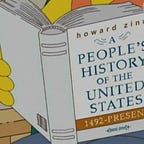Driving around in cars with wheels made of rocks, eating Brontosaurus steaks and being kicked out of your house by a Sabertooth tiger have all made The Flintstones seem a bit out of date. It’s not as relatable as when it first hit our TV screens back in the Stone Age. Similarly, this book is somewhat tied to when it was written. The world changes rapidly and due to that, the relationships between Brazil, Russia, India, China and South Africa (BRICS) have changed drastically. This means that certain aspects of the text no longer seem realistic, at least in their proposed forms. However, that is not to say that what the book puts forward is irrelevant. Everything is theory until things happen but what that theory is based on gives us an idea of the dynamics of the world and that can only be helpful… right? there were 29 contributors to this book, some more nuanced and some more blunt, but together they are all-encompassing when viewed as an extensive introduction to the BRICS countries.
Although they are all very different countries in terms of how their societies are set up n their relationships with the rest of the world, they are all emerging world powers and comprise 40% of the world population to challenge the established world order. But will their potential be realised? And would that make the world a better place? This was the main thing I grappled with when reading this and to conclude… I really don’t know. There are so many possibilities, a lot of them not good, yet even the worst of these could give rise to meaningful change in conditions and with that altering societal relations. I’d rather this change occurred without the badness, but sadly there doesn’t seem to be a historical basis for that happening. With that in mind, it is useful to study the history of different countries to understand how they developed the way they did. This book does some of this although it would have to be 5 times as thick to possess the adequate depth of info! Therefore this book is an ideal jumping-off point for exploring BRICS, their benefits and disbenefits.
Okay, I said I don’t know and I really don’t, however, I also don’t know what else to write about and I do have thoughts. There is potential for good if it led to material changes that addressed historic uneven development and made it harder for capitalists to prey on these countries. The problem with this is that I don’t see any of these countries (in their current forms), with the possible exception of China, being ones to make big changes to the benefit of the masses. We shall see I suppose…
